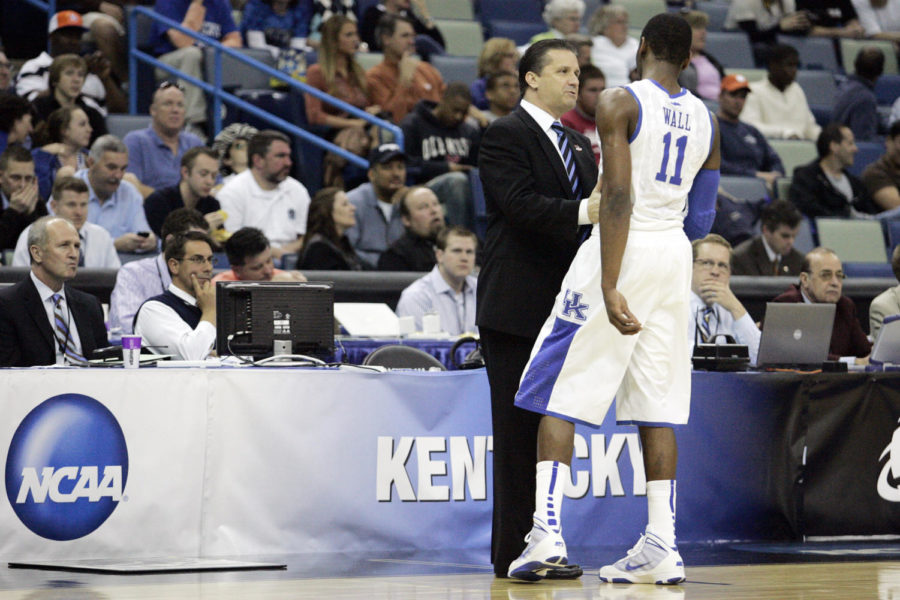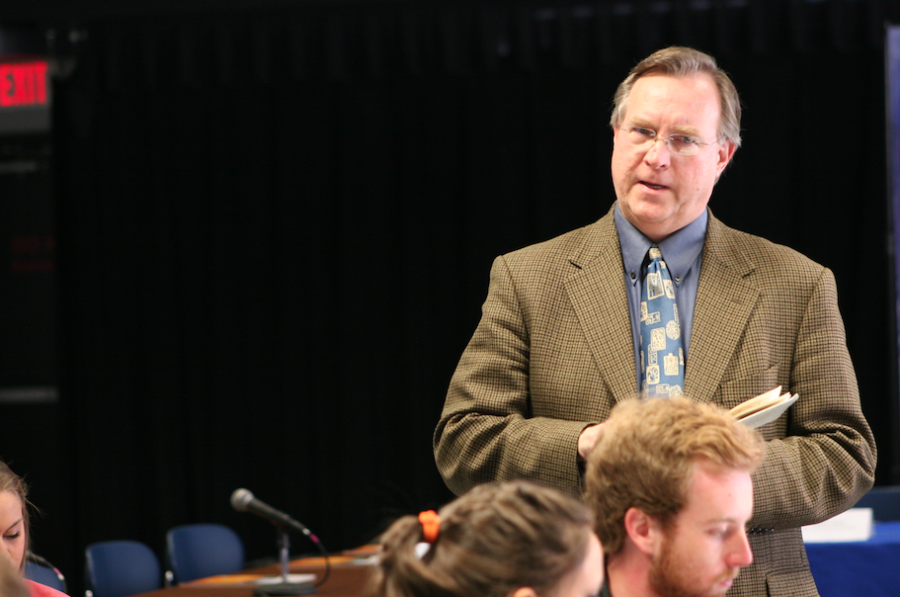‘The most explosive internal issue’ in years. UK faculty feel unrepresented in firing of tenured professor
June 1, 2018
Last week, concerned faculty members issued a letter to the entirety of UK’s faculty—over 3,200 individuals—in an effort to display information they say shows evidence that their access to the elected Faculty Trustees is being restricted.
In the letter, UK faculty fear access to their elected university officials are being limited in regards to the termination of a tenured professor. UK has argued back that it would be “inappropriate” for administrative and faculty members involved in the firing process to hear the faculty’s opinion as it may cause improper bias.
This comes after university officials initiated termination proceedings against Buck Ryan, a tenured journalism professor, following an internal audit that said he unrightfully profited from the sales of his self-authored textbook that was required for some of his courses.
The letter in question shows Professor Michael Kennedy’s unsuccessful attempt to give his opinion about the potential termination of tenured Journalism professor Buck Ryan to President Eli Capilouto and the Board of Trustees. Kennedy gave the Kernel many of his correspondences pertaining to the matter.
Kennedy’s initial correspondence to the administration, in which he requests that his opinion be shared with Capilouto and calls the Provost David Blackwell’s recommendation to terminate Ryan “almost-unprecedented”, was met by opposition by UK General Legal Counsel William Thro.
Thro authored an email back to Kennedy that said because the University Senate Advisory Committee on Privilege and Tenure would be advising President Capilouto, he would not be reviewing or responding to Kennedy’s email.
Thro added that because there is a possibility that the Board of Trustees may eventually be asked to rule on the case, it would be “inappropriate” for the Faculty Trustees, who are the elected faculty representatives on the Board of Trustees, to review or respond to Kennedy’s email.
Kennedy is claiming that Thro’s comments that his communications are inappropriate is “like saying it is inappropriate for citizens in a democracy to communicate with elected officials.”
Davy Jones, Ernie Yanarella and John Wilson, concerned faculty who issued a blanket email to campus opposing Thro’s opinion, are all former Faculty Trustees who served on the Board of Trustees.
In their widespread email, they state that in their combined experiences “former UK General Counsels never described to Faculty Trustees that it was inappropriate for Faculty Trustees to read communications from our faculty constituents on any of these matters, or any University matter.”
The matter of Professor Ryan’s termination is one that Kennedy calls, “probably the most explosive internal issue to come before this university in many years.”
Kennedy is also a former Faculty Trustee.
The university is backing Thro’s comments that allowing the administrative officials to review Kennedy’s opinionated comments would be inappropriate.
“The Board of Trustees may be asked to make a decision in Professor Ryan’s situation. Just as it is inappropriate for a judge to discuss the details of a case when there is a possibility that the judge may eventually have to decide the case, it is inappropriate for any member of the Board of Trustees to discuss details of Professor Ryan’s situation,” UK spokesperson Jay Blanton said. “To engage in such discussions could create a perception of bias or an inability to provide due process.”
Kennedy said that in his more than 50-year-long history at UK in various positions, the communication between faculty and administration has been relatively docile, but this issue threatens that reputation.
“The university has generally had leaders that listened to the faculty…the coexistence has been peaceful for the most part,” said Kennedy.
The issue of tenure is one that has garnered a lot of attention recently as the Kentucky state legislature’s latest biennial budget leaves room for universities across the state to relieve tenured faculty in certain cases related to monetary restraints.
Kennedy, who is currently a tenured professor in the Geography department, is also among professors who required their self-authored textbooks to be required material in their courses.
Kennedy said he wrote checks to students who bought his books to offset the royalties he would receive.
“I was able to assign my students to make those purchases with a completely clear conscience,” said Kennedy.




























































































































































